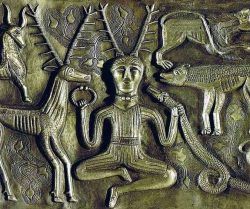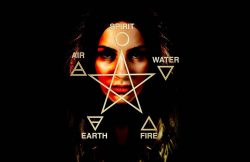Wiccan vs Pagan: The differences between Wicca and Paganism
Wicca and Paganism are two closely related spiritual paths that are often confused or used interchangeably. However, there are some important differences between the two that are worth noting.
What is Wicca?
Wicca is a modern, nature-based religion that was founded in the mid-20th century by a British man named Gerald Gardner. It is a polytheistic religion that worships a goddess and god, and incorporates practices such as spell-casting and ritual into its beliefs and practices. Wiccans often follow a set of ethical guidelines known as the Wiccan Rede, which states “An it harm none, do what thou wilt.”
What is Paganism?
Paganism, on the other hand, is a much broader term that encompasses a wide variety of ancient and modern spiritual practices. It is a umbrella term that includes many different traditions, such as Druidism, Asatru, and shamanism, as well as many other nature-based belief systems.
Pagans often worship multiple deities, and may or may not follow a specific set of ethical guidelines.
Comparisons and Differences
One of the main differences between Wicca and Paganism is their historical origins. Wicca is a relatively new religion, while Paganism encompasses a wide range of ancient traditions.
Wiccans also tend to be more structured and organized, with a hierarchy of leaders and specific traditions and practices. Pagans, on the other hand, are more diverse and decentralized, with many different beliefs and practices.
Another key difference is their approach to deity. Wiccans worship a specific goddess and god, while Pagans may worship multiple deities, or none at all. Wiccans also tend to have a more personal, individualized approach to spirituality, while Pagans may be more community-oriented and focused on group rituals and practices.
Similar but Different
In conclusion, while Wicca and Paganism share many similarities, they are distinct spiritual paths with their own unique beliefs and practices. Wiccans worship a specific goddess and god, follow a set of ethical guidelines, and practice structured rituals and ceremonies.
Pagans, on the other hand, are more diverse and decentralized, and may worship multiple deities or none at all. Both paths offer their practitioners a connection to the natural world and a sense of community and spiritual fulfillment.






































